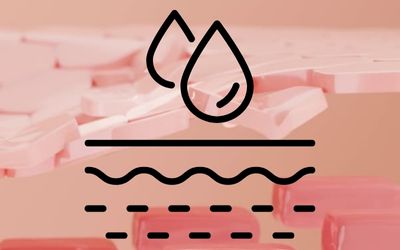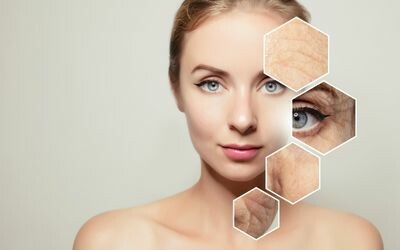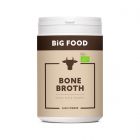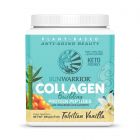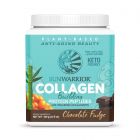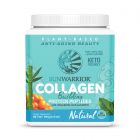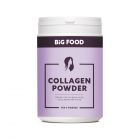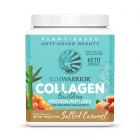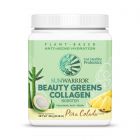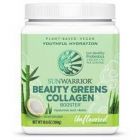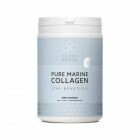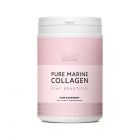Scientific Research On Collagen: Does It Really Work?
- By Bea Recuerdo (BSc)
- 30 Aug 2022
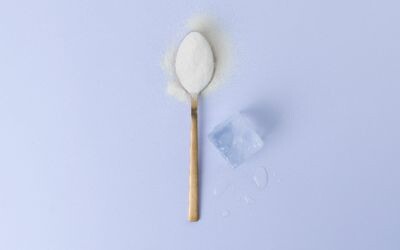
Several independent scientific studies have been conducted on the effect of collagen. The results in the field of skin improvements - such as reduction of wrinkles and cellulite, and skin firming - are impressive.
In this article, let's find out more about collagen - the research that's been conducted - and see if the hype about collagen is truly worth it.
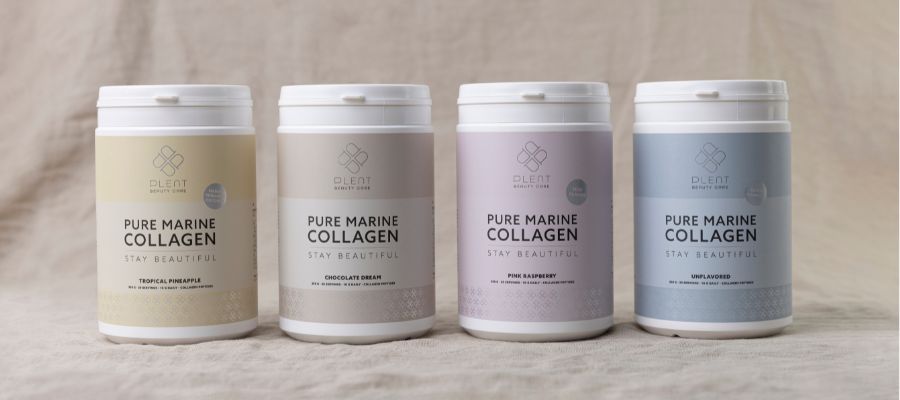
What are the benefits of collagen peptides according to research and studies?
One practice that has been regarded for years now is the use of collagen - especially marine collagen - to achieve beautiful skin. The practice dates back to the first century, along with several beauty rituals that have been practiced to rejuvenate the skin and reduce the signs of aging. And alongside this, it has also been seen as a way to regenerate damaged hair and strengthen nails. All this news about collagen makes us wonder whether the speculations are true or not. Let's find out!
Scientific research | the effect of collagen supplements on the skin
Positive effect on skin aging: Several studies show that collagen peptide supplements help with increasing skin moisture and collagen density. A total of eleven studies with 805 patients suggest that collagen peptides can positively affect various skin conditions and skin aging. These studies show that collagen supplementation was safe with no reported adverse effects.
Positive effect on skin moisture, elasticity, wrinkles, and roughness: Meanwhile, another study suggested that 10 g of collagen hydrolysate over 56 days leads to increased skin moisture where there was an improvement in skin moisture, elasticity, wrinkles, and roughness (Source: NCBI).
Positive effect on skin hydration and elasticity of the skin: And in addition, a study conducted on 66 women aged 40-59 years old treated orally with 10 g of collagen peptides for eight weeks showed positive results with improved skin hydration and elasticity of the skin, thus having the potential to reduce wrinkling caused by aging. (Source: NCBI, NCBI II, The Royal New Zealand)
Scientific research | the effect of collagen supplements on the hair
Collagen supplements can help regenerate damaged hair: In a study conducted on 39- to 75-year-old healthy women, a daily dose of collagen peptides (hydrolyzed Collagen) can help increase hair thickness and help regenerate hair follicles. (Source: Nutrafoods)
Scientific research | the effect of collagen supplements on the nails
Collagen supplements can help strengthen nails: Studies show that oral collagen supplementation for at least 4-weeks promotes a 12% increase in nail growth while decreasing the frequency of broken nails to 42%. Furthermore, a study stated that 64% of the participants achieved a global clinical improvement in brittle nails, and 88% experienced an improvement in 4 weeks (Source: Pubmed).
Scientific research | the effect of collagen supplements on joint pain and bone health
A study conducted on 140 participants instructed to consume collagen each day for 6 months reported that 10 g of collagen peptides as a dietary supplement can help reduce joint pain (Source: NCBI).
While in another study, it was mentioned that collagen peptides have a positive effect in relieving bone problems such as osteoporosis and osteoarthritis. It was mentioned that supplementing collagen to the body can have a potential protective effect on the articular cartilage, which primarily gives a feeling of relief (Source: Scielo).
Get a 10% discount on Plent and Big Food collagen now!
Use discount code: COLLAGEN10
discount applies to all Plent and Big Food collagen, with the exception of products to which a discount already applies.
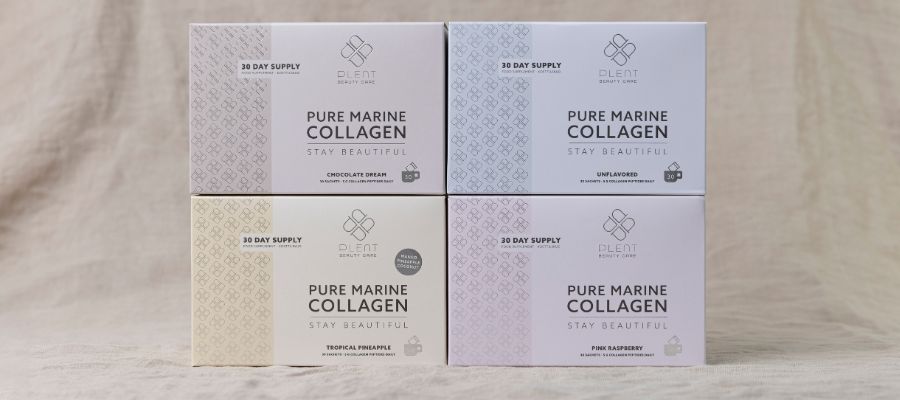
What affects Collagen production in the body?
Several factors can affect collagen production in the body. Overall, collagen production decline is the root cause of the visible signs of aging. The factors that can affect collagen production are the following:
- Aging: Studies have shown that our collagen production starts to decrease by 1-1.5% as we age, especially after our early adulthood. Researchers commonly recommend ages 40 to 60 years old take collagen supplements since collagen content during menopause can significantly decline to 2.1% and reduced skin thickness of 1.13% per postmenopausal year during 15-18 years. (Source: Parjournal)
- Diet & Lifestyle: Collagen can be naturally found in food. It can be found in various animal and plant foods containing materials for collagen production in our own bodies. However, an unbalanced diet can hasten collagen depletion alongside aging. Furthermore, vices such as smoking, excess alcohol, and lack of sleep and exercise may also reduce the body's collagen production (Source: HSPH)
- Ultraviolet Radiation: Studies suggest that frequent exposure to ultraviolet radiation from the sun can affect the skin negatively and increase the rate of wrinkling, fine lines and brown spots. This is because ultraviolet radiation activates the breakdown of collagen in the layer of the skin and potentially shut down new collagen synthesis (Source: NCBI)
- Lack of Vitamin C in the body: Lack of Vitamin C can disrupt collagen production. In normal conditions, the skin contains Vitamin C, which helps stimulate collagen synthesis and, at the same time, assists antioxidants in protecting the skin from UV-induced photodamage. This is why Vitamin C deficiency is associated with poor wound healing as well since it affects collagen production and formation in the deep layers of the skin (Source: NCBI)
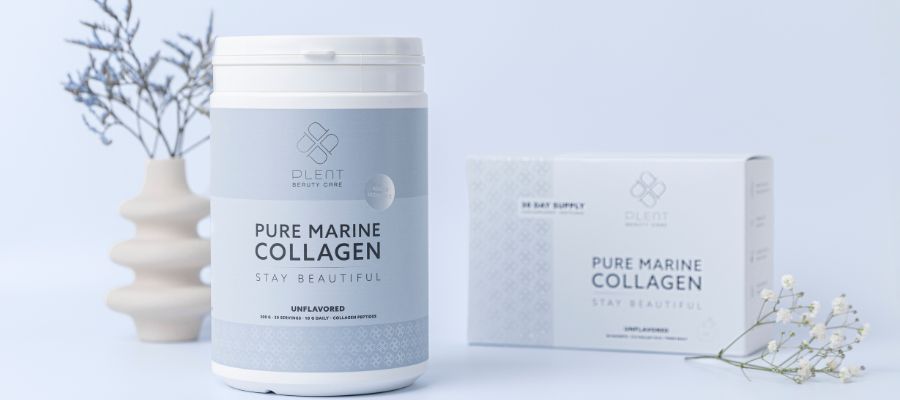
Which is more effective: topical application (skin creams) or oral intake of collagen?
The earlier factors paved the way to using "endogenous" collagen sources to supply the body with collagen to prevent skin aging, brittle nails, and regenerate damaged hair. Collagen was seen as the key to the "fountain of youth" and first started with topical or skin application and eventually oral 'collagen' both being widely used and claimed to possess anti-aging properties for the past several years. Let's now find out which of the two is more effective.
Topical Application of Collagen (skin creams)
During the first years of studying collagen, it appeared in the market as an ingredient in skin creams and serums. But as further research was conducted, its application was less effective since collagen is found on the deeper layer of the skin and not on its surface. Furthermore, during this time, manufacturers used collagen in its original form because collagen peptides, the broken-down form of collagen, lacked research to be effective. However, it was seen that collagen in its raw form had collagen fibers that were too large to penetrate the skin's outer layers.
Oral Collagen Peptide Supplements
After realizing that topical collagen application was less effective, researchers explored the possibility of using Collagen peptides.
Collagen peptides are produced when collagen undergoes a process called hydrolysis, where collagen is broken down into smaller pieces by adding water molecules to become hydrolyzed collagen or collagen peptides. Hydrolyzed Collagen or Collagen Peptides is an easily digestible and absorbable form of Collagen.
Collagen peptides or hydrolyzed collagen peptides were marketed in pills and powders, which eventually became famous worldwide for their potential to health and slowing down signs of aging such as wrinkles and fine lines and improving joint and bone health.
Collagen supplements provide your body with a dose of Collagen peptides. These collagen peptides are quickly broken down into amino acids, then reused by the body to create Collagen.
Get a 10% discount on Plent and Big Food collagen now!
Use discount code: COLLAGEN10
discount applies to all Plent and Big Food collagen, with the exception of products to which a discount already applies.




